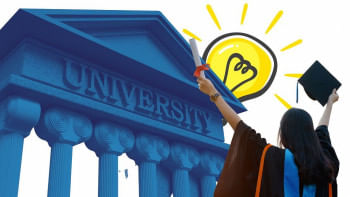AI
Analysis / AI to give fillip to new industrial revolution
Artificial intelligence has the potential to revolutionize various industries, spearheading a new technological and industrial revolution
Artists use tech weapons against AI copycats
US illustrator Paloma McClain went into defense mode after learning that several AI models had been "trained" using her art, with no credit or compensation sent her way.
OpenAI releases guidelines to gauge 'catastrophic risks' of AI
The announcement comes one month after the company's board fired CEO Sam Altman, only to hire him back a few days later when staff and investors rebelled.
Our outdated, inefficient higher education institutions
The world has never witnessed such unprecedented human-to-technology interactions.
Google unveils MedLM, the healthcare AI
Google has recently introduced MedLM, a suite of AI models designed for the healthcare sector. Built upon the foundation of Med-PaLM 2, Google's large language model (LLM) for the medical domain, MedLM will be made available on the Vertex AI platform for Google Cloud users in the United States.
Pro-government outlets spreading AI generated misinformation, report finds
In a recent investigation, the British daily Financial Times has uncovered a disturbing trend of artificial intelligence (AI) being weaponised to spread disinformation in the lead-up to the general elections in Bangladesh. The report indicates that entities aligned with the government are utilising AI tools from various start-ups to craft deepfake videos and fabricated news segments, with the aim of influencing public opinion.
Why university students should consider using AI in research
While some may say that using AI is ethically dubious, popular research journals have already started conversations on how to use it.
Microsoft, US labor group team up on AI
Microsoft and the AFL-CIO, the pre-eminent labor group in the United States, have entered into a partnership to better address the consequences of artificial intelligence on the workforce and to guide government regulation.
Machine unlearning: Making AI 'forget' instead of 'learning'
With machine learning-based chatbots comes the ever-present worry of inaccuracies and unreliable information. As such, a new type of discipline within the realm of AI is being introduced: machine unlearning, which aims to make AI-generated output more reliable and safe by making the model 'forget' information instead of 'learning' new ones.
AI to give fillip to new industrial revolution
Artificial intelligence has the potential to revolutionize various industries, spearheading a new technological and industrial revolution
Artists use tech weapons against AI copycats
US illustrator Paloma McClain went into defense mode after learning that several AI models had been "trained" using her art, with no credit or compensation sent her way.
OpenAI releases guidelines to gauge 'catastrophic risks' of AI
The announcement comes one month after the company's board fired CEO Sam Altman, only to hire him back a few days later when staff and investors rebelled.
Our outdated, inefficient higher education institutions
The world has never witnessed such unprecedented human-to-technology interactions.
Google unveils MedLM, the healthcare AI
Google has recently introduced MedLM, a suite of AI models designed for the healthcare sector. Built upon the foundation of Med-PaLM 2, Google's large language model (LLM) for the medical domain, MedLM will be made available on the Vertex AI platform for Google Cloud users in the United States.
Pro-government outlets spreading AI generated misinformation, report finds
In a recent investigation, the British daily Financial Times has uncovered a disturbing trend of artificial intelligence (AI) being weaponised to spread disinformation in the lead-up to the general elections in Bangladesh. The report indicates that entities aligned with the government are utilising AI tools from various start-ups to craft deepfake videos and fabricated news segments, with the aim of influencing public opinion.
Why university students should consider using AI in research
While some may say that using AI is ethically dubious, popular research journals have already started conversations on how to use it.
Microsoft, US labor group team up on AI
Microsoft and the AFL-CIO, the pre-eminent labor group in the United States, have entered into a partnership to better address the consequences of artificial intelligence on the workforce and to guide government regulation.
Machine unlearning: Making AI 'forget' instead of 'learning'
With machine learning-based chatbots comes the ever-present worry of inaccuracies and unreliable information. As such, a new type of discipline within the realm of AI is being introduced: machine unlearning, which aims to make AI-generated output more reliable and safe by making the model 'forget' information instead of 'learning' new ones.
AI, AI, Captain: Will machines end our creativity?
Will artificial intelligence end human creativity? Or will it complement and expand it?











